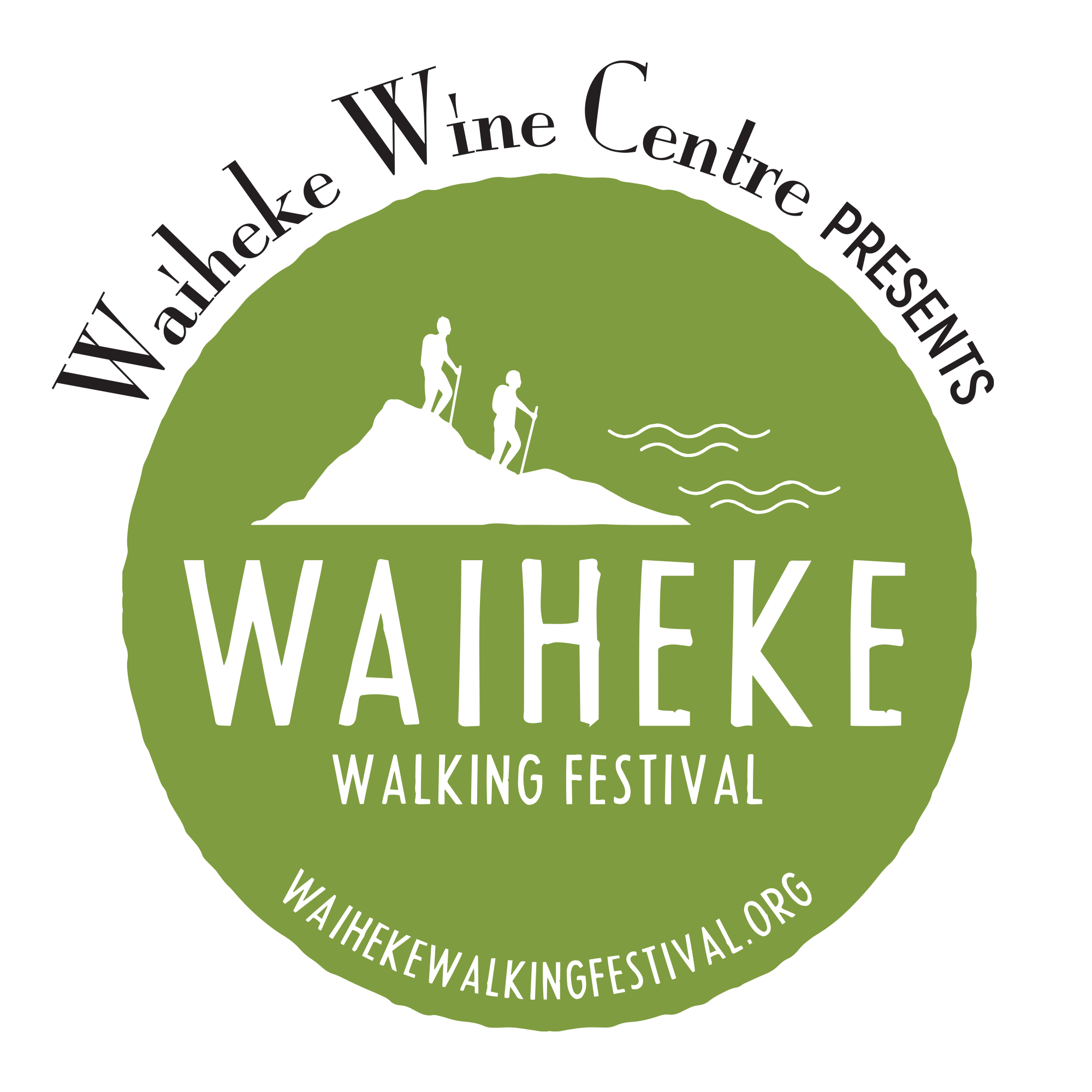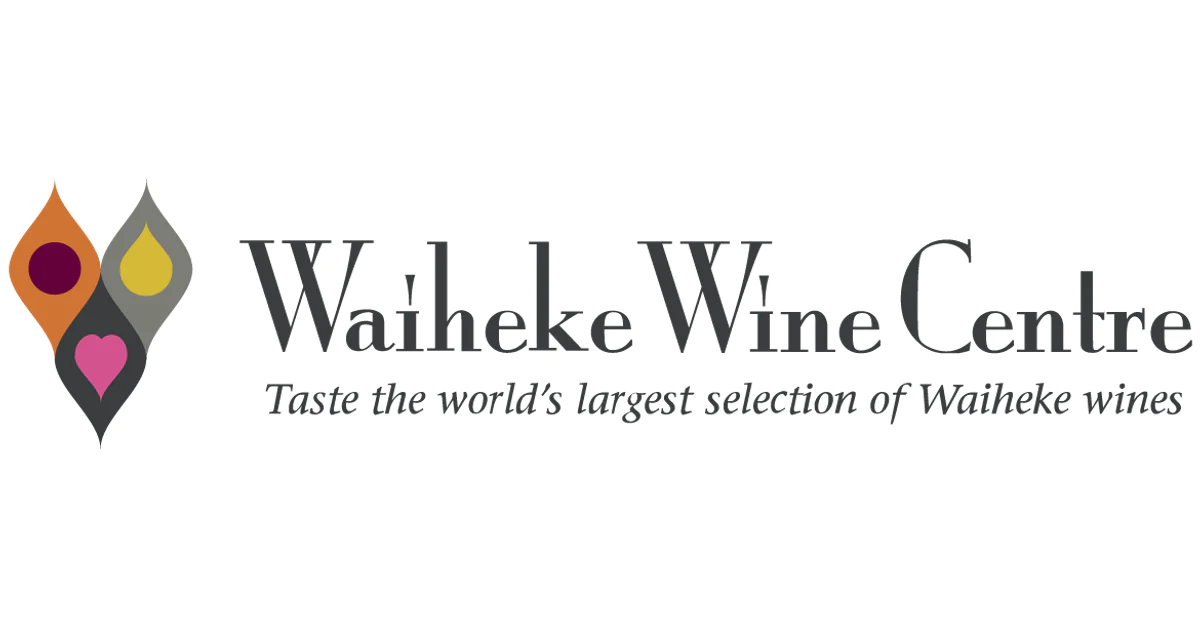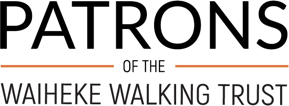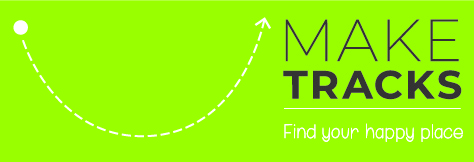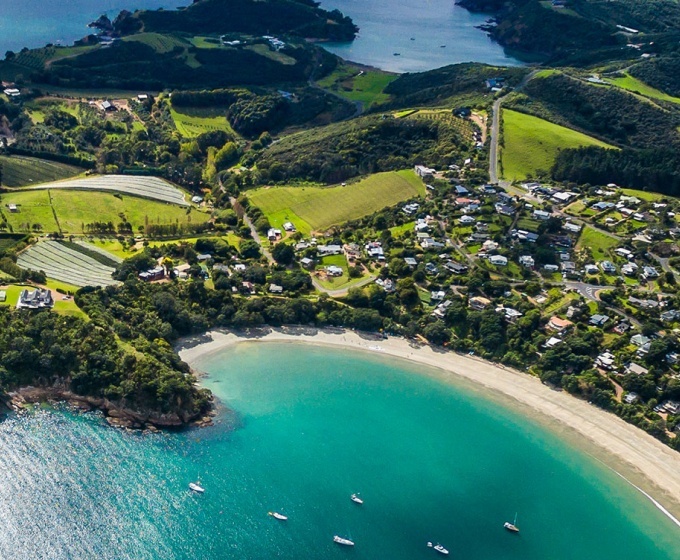
Walk Grades, Kauri Dieback & Safety
Beautiful Waiheke is hilly and very steep in places. Most walks during the Festival will have a lot of up and down and there will often be steps. Please be mindful of this when you are considering which walks you will register for.
Each walk has been graded out of ten. The grading reflects the type of terrain and walking surfaces you can expect. It is easy to overestimate fitness levels, particularly if you are not used to track walking and hills. Did we mention the hills on Waiheke?
We err on the side of caution with descriptions and finishing times for walks.
-
Grade 1-2These walks will be short and flat, think gentle beach or footpath walking.
-
Grade 3-4Usually road or very well formed track, may have some narrow or muddy stretches.
-
Grade 5-6Off-road walking track, possibly narrow or muddy stretches and steep sections.
-
Grade 7-8Mostly unformed route or tracks that are tricky underfoot, prolonged steep hills – but well worth the effort.
-
Grade 9 - 10More of the above! Maybe a rope-assisted hill climb. Maybe some bush bashing.
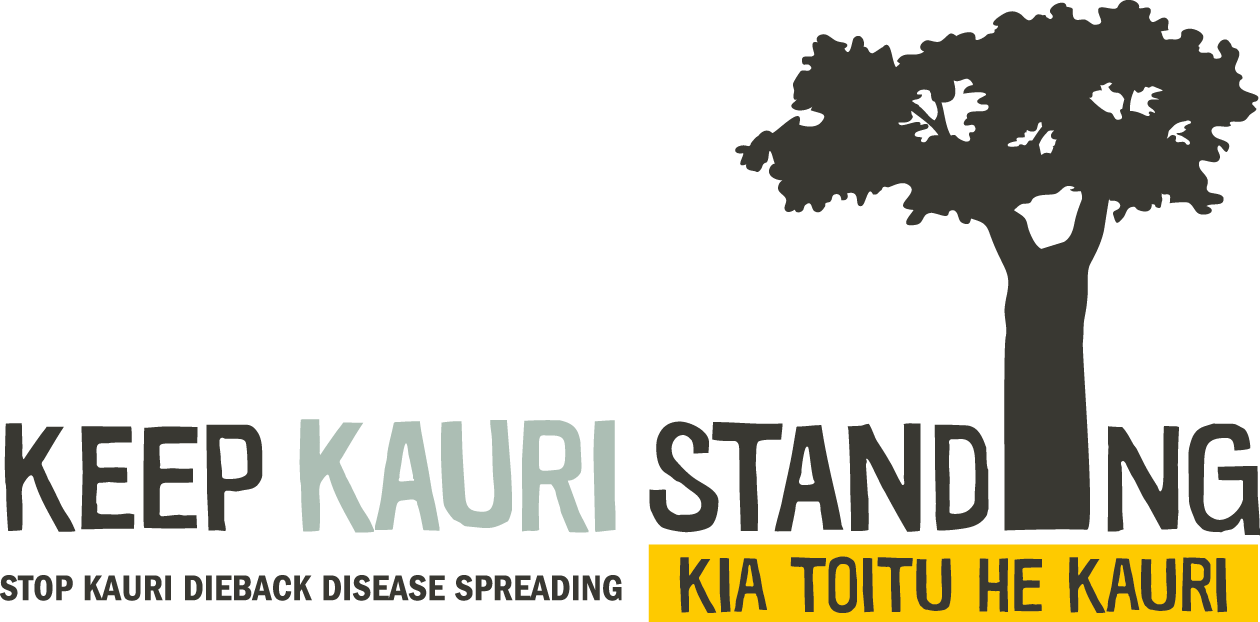
The Waiheke Walking Festival supports ‘Keep Kauri Standing’.
What is it?
Kauri Dieback (KDD) is a fungus-like disease that is specific to kauri and kills trees of all ages and sizes. It is spread mainly through soil movement on equipment such as footwear, machinery and mountain bikes.
The spores are truly tiny (10,000 to a pinhead by size), can remain viable for up to 10 years without a host, and anything that touches the ground can carry them. So it is critical that all equipment on each walk, including boots and walking poles are cleaned thoroughly every time they are used.
What happens to kauri?
The microscopic spores in the soil can infect kauri and damage the tissues that carry nutrients within the tree. Infected trees show a range of symptoms including yellowing of foliage, loss of leaves, dead branches and lesions that bleed gum at the base of the trunk. Infected trees may have no symptoms.
This disease is currently incurable.
Nearly all infected kauri eventually die.
Why is it so important?
Without action to control the spread of this disease, we may lose the kauri forest ecosystem for good. Kauri trees are national icons for all New Zealanders and important for our eco-tourism. They are taonga (treasure) of great significance to Māori. Entire ecosystems depend on this significant species.
Where is it?
Kauri dieback has been found around the Auckland region, on the Coromandel Peninsula and Great Barrier Island and in Northland forests. It is currently undetected on Waiheke Island, however infected kauri can remain non-symptomatic for long periods after contracting kauri dieback, so all kauri need to be treated as though they could be infected.
The Waiheke Walking Festival and our Kauri dieback prevention efforts
We urge all walkers to arrive on Waiheke, with all walking equipment completely soil free. This is how we will stop infected material coming to Waiheke from contaminated areas like the Waitakere Ranges. This material could remain viable for many years, even if it is spread to a footpath or ferry terminal etc. In addition, our volunteers will scrub and disinfectant spray all walkers’ shoes at the start and finish of every walk during the Festival. All walking shoes & poles will be brushed, then sprayed with a solution called Sterigene. Sterigene is a non-toxic, biodegradable solution – a veterinary grade disinfectant.
What you can do to help
Please ensure your footwear, poles (and paws!) are thoroughly cleaned before arriving on Waiheke Island. There are cleaning stations at Pier 2 at the downtown wharf, and at Half Moon Bay and Wynyard Wharf. Please support our volunteers and the Waiheke Walking Festival in our efforts to help keep Kauri dieback off our beautiful Island by helping us with the process to brush and spray your walking shoes/boots before and after each walk. Note that it is a requirement for us to do this, even if you have already cleaned your shoes prior to arriving on Waiheke.
The Waiheke Walking Trust takes the health and safety of Waiheke Walking Festival attendees, our guides and our volunteers very seriously. We have strict training and operational procedures in place and it is essential that you follow the instructions of your guides and volunteers at all times.
Please read carefully the requirements for each walk.
We recommend you have the following on every walk:
- Sufficient water for the duration of the walk plus a bit extra
- Sunhat
- Sunscreen
- Comfortable and practical shoes for the terrain
- Any emergency medication you may require for pre-existing conditions
(eg: inhalers, epi pens)
You will be required to sign our Walk Manifest on the day of the walk to show that you have read and understood our Health Safety Welfare & Environmental Declaration document prior to each walk where any relevant medical conditions must be disclosed and discussed with the lead volunteer. See below for our Health Safety Welfare & Environmental Declaration.
The Waiheke Walking Festival organisers have the right to refuse any person registered for the walk the opportunity to participate if they feel you are not suitably prepared or your health status suggests you may put yourself or the wider group at unnecessary risk. We thank you for your understanding with this.
Children must be accompanied by an adult. Participants are responsible for their own belongings and vehicles while on walks.
If you have further questions about safety and responsibility do email us on info@waihekewalkingfestival.org.
Health Safety Welfare & Environmental Declaration
In consideration of the walks run by Waiheke Walking Festival, the participant agrees:
1. RISK FACTORS
The participant understands and acknowledges that the Waiheke Walking Festival tours involve risks including, but not limited to, the risk of property damage, bodily injury, including but not limited to permanent disability, paralysis and possible death. These risks may result from the use of the walking tracks or footpaths, from the act of walking, from the acts of others or the unavailability of medical care.
2. ASSUMPTION OF RISK
The participant voluntarily assumes all the risks that may result from the use of the walking tracks and or footpaths. They further confirm that they have the prerequisite skills and physical and mental capabilities to undertake and complete the tour.
3. INDEMNITY
To the fullest extent permissible in New Zealand Law the participant releases, waives and indemnifies Waiheke Walking Festival and all of its employees, guides and volunteers from all claims, actions, suits, liabilities, losses, demands or expenses for any property loss, personal injury, death or other loss arising from the undersigned’s use of the walking tracks and or footpaths.
4. IN CONSIDERATION OF USING THE WALKING TRACKS AND OR FOOTPATHS
The participant agrees that they shall:
- remain with the walking group at all times
- stick to the designated path or route and respect private property
- at all times obey any and all instructions or requests made by a Waiheke Walking Festival employee, guide or volunteer.
5. NURTURE OUR ENVIRONMENT
The Waiheke Walking Festival aims to minimise our impact on the Waiheke environment. The participant agrees to help us protect our plants, wildlife and natural heritage. Please don’t litter and remove any rubbish.
6. KEEP KAURI STANDING
Kauri dieback is a fungus-like disease that kills New Zealand kauri trees. To help keep Waiheke’s kauri safe always the participant agrees to clean their gear e.g. shoes, equipment, before and after walking the tracks.
7. VIDEO & PHOTOGRAPHY
Any footage of the walk and walkers may be used by the Festival in any manner it chooses.
